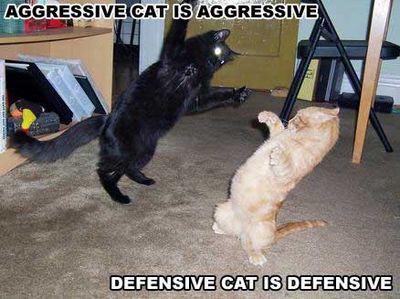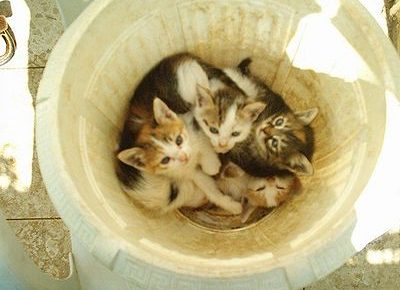
There are different reasons for some cats to show aggression. Aggression can be due to a medical problem, fear, territorial, play, petting or pain induced, predatory or maternal.
It’s important to determine in what circumstances your cat shows aggression along with the type. First, take your cat to your vet for a thorough physical examination to make sure there is no medical reason for aggression. Then try to observe when and how your cat shows aggression and make a note of them.
If your cat feels threatened or is cornered or is exposed to unfamiliar situations, it may lash out.
Kittens and young cats are very playful and will often stalk, pounce and bite.
Predatory aggression is instinctive with cats as they hunt prey by stalking, pouncing and attacking.
Play and predatory aggression can be controlled and redirected by stimulating your cat to play with toys. Try using more toys that your cat can play with on her own. Don’t wait for your cat to initiate playtime with you. You choose the time and place and length of playtime. Perhaps your cat would be more content if she has another cat as a playmate. Just make sure both cats are socialized enough to accept each other without attacking.
Territorial aggression is usually directed towards another animal that invades its space. It can occur with the addition of another cat to the household. This can be avoided by introducing cats to each other slowly, having separate feeding bowls and litter boxes. At first, confining the new cat, then gradually allowing them to see each other through a partition and then allowing them supervised time to get acquainted. Usually, cats eventually get along with each other. See more: How to Manage with Multiple Cats
Maternal aggression occurs when a mother cat is protecting her kittens. Well-adjusted household cats allow their humans contact with their babies.
With any type of aggression, when directed at you, other family members or other animals, it can be dangerous.
In any case, if aggression of any sort persists in spite of all your efforts, seek the advice of an animal behaviorist.
Related articles:



